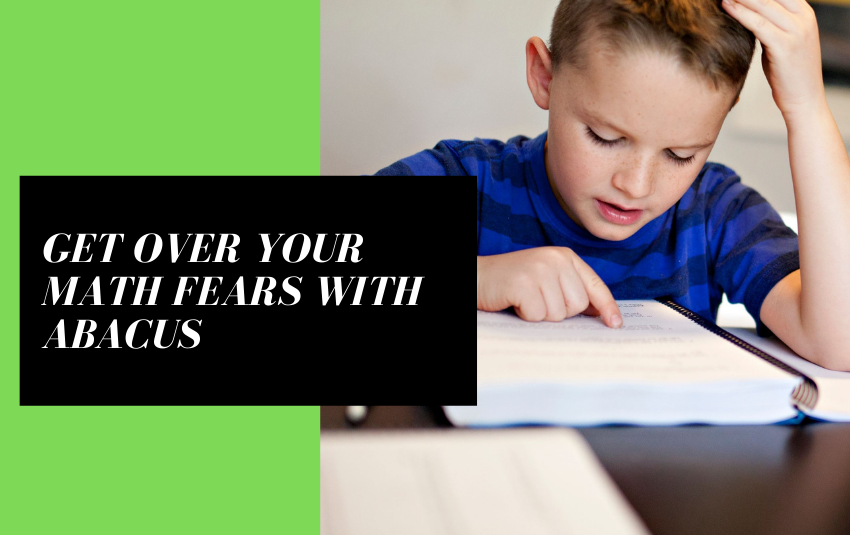Does doing or learning math still feel like a nightmare to you or your child? If yes, you probably are not alone. Mathematics is (we think, quite unreasonably) dreaded and painted as a difficult subject. However, what if that could be changed? What if the fear of math can be overcome? Abacus math might just be your perfect solution!
How can we resist fears toward math?
People tend to fear the unknown in all walks of life, including that of learning mathematics. Perhaps, individuals end up fearing math because they are not able to grasp it immediately. While it might be instinctive to run away and give up, the first step is to acknowledge the fear and the problem. It is important to be kind to yourself and to allow yourself to learn step-by-step because you can only resist the fear of something you do not know about by giving it a chance. Taking help from those around you, like tutors, teachers, parents and friends can do wonders, while you learn at your own pace. Lastly, a common complaint about math is that it is not useful in our everyday lives. However, math is a part of our lives more than we may realize. Along with your parents, children and friends, try connecting the usage of math with everyday situations, for example: dividing halloween candy between siblings, doubling a cookie recipe, and constructing stable structures with legos.
How can abacus math help combat a fear of math ?
The abacus method trains students to gain a mastery over arithmetic. With the support of instructors, parents and peers, students learn neat tricks to add, subtract, multiply and divide numbers of gradually increasing size over time, on an abacus. With practice, abacus math knowledge becomes a superpower; students learn to solve arithmetic problems with a breathtaking speed even with larger numbers. Simultaneously, they also practice visualizing abacus bead movements in their minds; this is when students get to use the abacus rules their own and find their own individualistic way to solve math. Over time, math becomes a part of the student, rather than a scary, unknown concept.
Earning some extra self-confidence with Abacus
In his study, self-esteem expert Jack Canfield found that while 80% of children possessed healthy self-esteem in grade 1, this number dropped to a mere 20% by grade 5. One of the reasons could be lack of proper support while academic hurdles increase. Since learning the abacus method trains both one’s creative and logical skills, it allows for a balance of rules and creativity and thus, make learning a less intimidating process.
Math is not meant to be boring! Rather, it can make everyday tasks simpler and build on untapped potentials one may have. At Abacus Master Canada, we choose to create an environment for learning where students can explore math in an unconventional way: numbers become beads that are organized in a clever fashion and can be manipulated both physically on an abacus and eventually on the mind. As students slowly build their self-confidence with math along with our supportive instructors, they find their own special way to visualize numbers and calculations, while learning unique tricks to solve math faster on an abacus.
Source: http://adventurestoawesome.com/hot-topics/kids-self-esteem-statistics/

Sharmila Suresh
Sharmila Suresh is the Program Director and an Abacus instructor for over 3 years. Her philosophy is to create an environment that fosters the importance of learning and a strong work ethic. She is very passionate and teaches from the heart while allowing students to discover their abilities and mould them into confident individuals.



Recent Comments